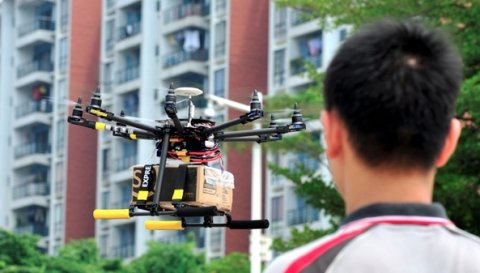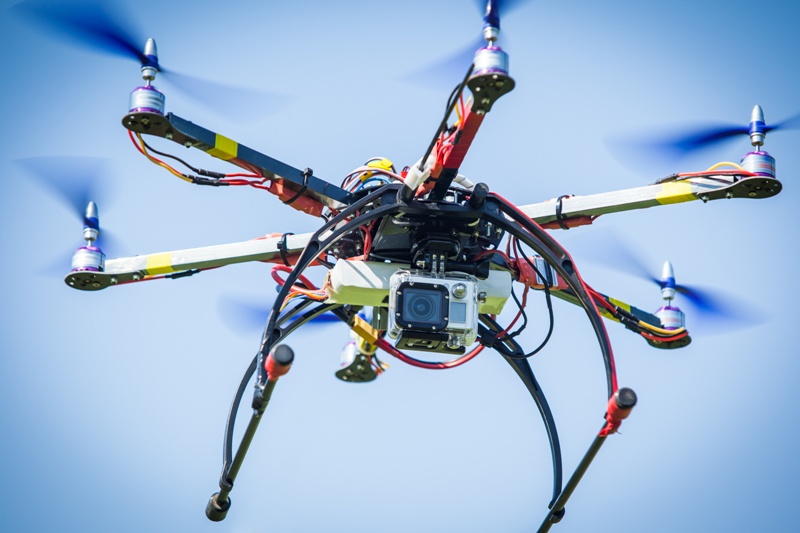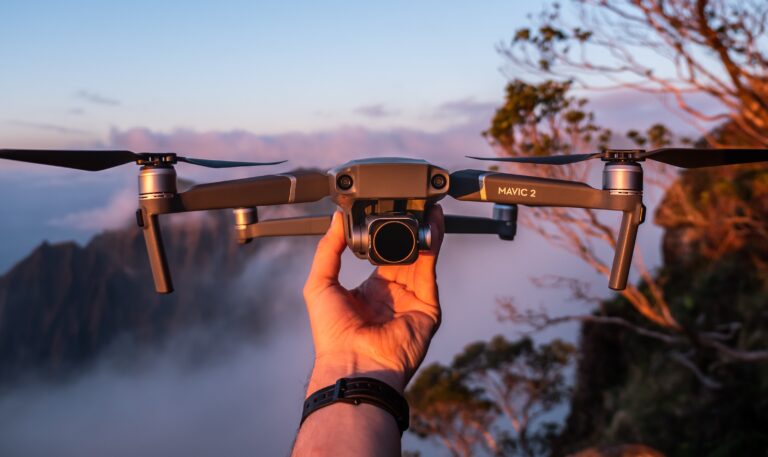See how Daxue Consulting can help you and your brand
Drones Market in China
The Chinese government is not only committed to investing heavily in technological innovations but also to integrating them into the Chinese economy. This is readily seen with respect to drones. China’s drone industry is expected to exceed $11 billion by 2025. Drones are already being applied in China in many different sectors – from military and police to agriculture and real-estate.
What role do drones play with respect to the growth of the Chinese economy?
China is transforming its economy from relying on the mass manufacturing of disposable goods to an economy that relies on continued technological innovation. “Indigenous innovation” campaigns and programs targeting innovation in the technological sector have been launched by public and private agents. Drones are playing an important role with respect to the Chinese R&D ecosystem, which the Chinese government hope will become the backbone of its growing economy. Indeed, China Daily reported in June 2016 that China’s consumer drone market is set to boom in 2017.
Drones Market in China – Facts and Figures
Foreign firms perceive the Chinese drone market as an excellent investment opportunity. For instance, Intel invested $60 million in Chinese drone manufacturer Yuneec in August 2015 (in addition to $67 million in eight other Chinese drone companies). CBInsights reported that nearly $500 million had been spent on investments in the Chinese drone sector. Many of the drones manufactured in China are exported. ZDNet reported that drone exports from China totaled more than $413 million and that exports were projected to increase over the next years.
Adoption of Drones in China
Compared to many Western countries, China has progressed far along the Technological Adoption Life Cycle, and can be argued to currently lie at the intersection of Early Adopters and Early Majority. This is because drones have already been widely implemented in China across a broad range of industries. Drones are for instance already used to monitor factories and observe whether or not their pollution levels exceed the legal amount, as well as disaster relief. They have also been used to gather intelligence on drug trafficking, and the intelligence they gathered served as the basis for a very successful raid. Drones are also being used in the Chinese oil and gas sector to monitor existing oil and gas field and discover new ones.
As the adoption of drones moves into the early majority segment of the technology adoption life cycle, consumers are likely to become more sensitive to price and feel more secure about the functionality of drones and trust them. This suggests that businesses wishing to capture market shares in the Chinese drone market should emphasize lowering costs while at the same time maintaining or enhancing the quality of the drones.
Players in the Chinese Drone Industry

The competition in the Chinese drone industry is increasing and becoming more and more fierce. A plethora of start-ups is trying to beat the dominating Dajiang Innovation, which is estimated to have accounted for 70% of the consumer drone market last year. However, experts are skeptical as to whether or not these start-ups will be able to compete with the economies of scale achieved by Dajiang Innovation. Says Jean Xiao, an IDC research manager: “There are several dozen Chinese companies doing similar things but they still face a lot of hurdles before mass production.” Taken together with the fact that the drone market appears to move into the Early Majority stage of its life cycle, which is characterized by increased consumer scrutiny of prices, the future of start-ups may be dim. Indeed, it is often the firm that is dominant when entering this stage that continues to hold the largest market share throughout the rest of the product’s life cycle.
Hence targeting niche segments of the drone industry may perhaps be for incumbents or new entrants willing to expand their business. By its very nature, the drone is a multi-purpose product with a wide range of applications. Wintergreen Research President Susan Eustis claims drones will also be increasingly deployed in media, mapping, real estate, and law enforcement. She also stresses that “there is a lot of room for companies to do different things”, suggesting the existence of the opportunity for drone manufacturers to carve out niche segments in the drone industry.
Opportunities for Developing Drones 2.0
As stressed previously, the drone is a multi-purpose product. However, the core technology used in drones can to some extent be perceived as the common denominator between all different kinds of drones. Nonetheless, depending on what the drone is used for, innovation may be required to change and adapt the core technology to particular needs. For this reason, “drones” may be too broad a term to be meaningful. For instance, the Chinese human-carrying drone Ehang requires different core technology than drones used for surveillance purposes. Hence, firms should consider to what extent the core technology the drone must rely on already exists, or if it will have to be created. Should the latter be the case, then it may serve as a very attractive niche segment, with the potential to being evolved into a broader segment.
In conclusion, due to the Chinese government’s focus on investing in R&D in order to transform its economy to an economy that primarily relies on technological innovation, the Chinese drone market is particularly attractive. Due to the very nature of the drone, it can be applied in many different areas, suggesting many opportunities for businesses operating in the Chinese drone industry or wishing to invest therein.
Case Study: Consumer Electronics Industry
An international consumer electronics firm was interested in developing its business model in China to include e-commerce.
The client contacted Daxue Consulting to understand the impact of e-commerce in its business model in China. In order to develop its digital presence in China, the client needed to understand fully who were the customers, their tastes, and habits regarding their online experience. They also needed to get feedback from the strength of their brand online and define the channel to increase the traffic to their website.
Daxue Consulting identified a sample of potential users and surveyed them. Daxue Consulting’s research allowed the client to identify its potential customer’s profile. With this report, the client significantly differentiates itself from the competition.





